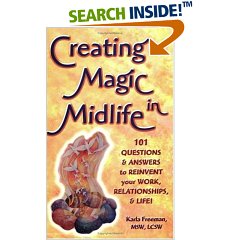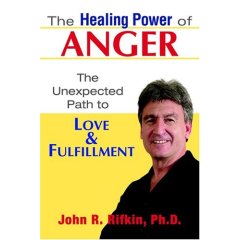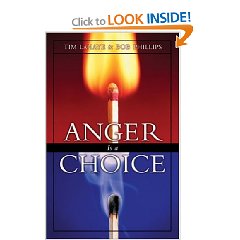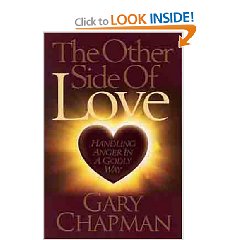 Protecting Yourself From the Irritations of Life
September 30, 2002
Protecting Yourself From the Irritations of Life
September 30, 2002
How do women become so wise and resilient? And why do we sweat
the small stuff so much? Is there some balance, some moment when
you realize that most of it is all small stuff?
Kristine Carlson is married to Richard Carlson and together
they show great insight into the everyday life. Their books can
seriously start to change your life if you use the principles
they present in these easy-to-read compact books. I especially
like their "Don't Sweat the Small Stuff in Love" book
and I think it helped me improve my own relationship
considerably by making me realize that one of the most important
needs humans have is to be listened to. I had never really
thought about what the other person needed in conversation,
always so busy jabbering on. Wow, that was quite a revelation to
me and it changed my entire view of conversation.
Expect real revelations from these books. They are more than
enlightening. Sometimes a simple awareness of an issue can
trigger an entire thinking pattern that will help you make
changes. When reading this book a highlighter is essential!
Kristine discusses why you should set aside time every
morning to reflect. See, that is a good excuse to spend a little
time in the morning chatting online? Right? Ok, well I think
that she actually meant spending time alone thinking about your
day.
As you move into your day, you try to get organized and at
times the entire day feels like it is falling apart. Have you
noticed that if you pick up the house in the morning, the entire
day is more enjoyable? Kristine gives herself an hour each
morning to clear the path of her day. She spends time each
morning organizing her life. I loved her thought about laundry.
A gentleman she met makes folding clothes a Zen meditation. Ok,
so I am not burning candles while I fold towels, but I try not
to be as stressed about it all.
Some of her ideas include:
Make Peace with The Mundane - Sometimes life just IS.
Ground Your Energy in Nature - Take a walk in the evening.
Protect Your Inner Flame - Nurture yourself.
Plan an Inspiration Flow Day - Just go with the flow...oh,
what fun this type of day is. It is very freeing and you do just
what occurs to you. I write the most reviews on these types of
days. They might include reading a great book, watching a movie,
sitting outside with the cats, making dinner, writing in a
journal, exercising. On other days, you might feel like just
leaving the house for most of the day and forgetting about that
load of laundry, those dishes, etc. Just escaping can be most
freeing.
Walk Through Open Doors - A positive attitude shows you more
open doors.
Let Go of "Perfect" Plans - have a sense of humor
when things don't work instead of crying your eyes out. Disappointment
is so hard to take when you have very high
expectations.
Climb Your Mountain One Step at a Time - set goals, but take
it one step at a time.
Save Pot Stirring for Cooking Dinner (I really liked that
one!)
Gather and Let Go
Define Your Small Stuff
This is a collection of essays that will inspire you and you
will learn to appreciate people in your life, swallow your
anger, take time for yourself and nurture your friendships.
Use this as a way to make your own list of things you want to
change in your life.
Then:
Go run in a rain puddle
Light Candles while you watch a movie
Think about Beautiful Moments
Start a Journal
Say something inspirational to a friend
Tell someone in your life you love them
Let some things go, don't obsess so much (ok, but it is hard to
do!)
Define what is not really important then imagine it drifting
away on a small boat, down the river in front of you. After all,
who has time for all that baggage.
Read this book to help you see the really important things in
life.
Great Insight!

Creating Magic in Midlife
 Reinvent Your Life , May 13, 2006
Reinvent Your Life , May 13, 2006
Before I started listening to my own still, small voice, I
dragged myself around and tried to be happier by having more
goals. Magic didn't come into my life until I started to ask
myself what I really wanted, this moment. ~Karla Freeman
Creating Magic in Midlife is Karla Freeman's gift to anyone
looking for answers as they enter a new stage of their life.
Karla Freeman's vibrant and encouraging writing style creates a
nurturing environment for anyone wishing to avoid a midlife
crisis. Helpful questions draw attention to enlivening moments,
as readers are encouraged to discover their true heart's desire.
Is it too late to improve relationships?
How can you begin a new career?
What does it take to handle drastic changes?
Can you still satisfy your deepest longings after 45?
Can a crisis become a moment of spiritual awakening?
The 101 questions and answers focus on ages 45-70, but anyone
over 35 will find a wealth of wisdom in the life evaluation
sections. Health, finances, energy enhancement and even a brief
explanation of Ayurveda keeps the writing fresh and
enlightening.
Ideas about walking to sort out emotions and suggestions for
maximizing endorphin release gives this book a practical side.
There are ideas for healing vacations, unique sections on
menopause and she even discusses the issue of how we become
stressed about trying to stay healthy. Isolation, Transference,
grief ritual retreats, working from home and healthy living to
prevent memory loss is also discussed.
Karla Freeman draws on her life experiences and well-read life
to explore ideas about why a balance of work and love leads to a
healthy life. This book may be the perfect starting point for a
journey into your soul's deepest desires.
With numerous book suggestions throughout, Karla Freeman
succeeds in not only creating an environment of support, she
encourages further reading into areas that will be especially
helpful for anyone wishing to avoid a midlife crisis as they
embrace the ideas in Creating Magic in Midlife.
~The Rebecca Review

The Healing Power of Anger
 A Pathway to Emotional Health, February 22, 2006
A Pathway to Emotional Health, February 22, 2006
"Most people associate anger with loud, scary, and bitter
explosions. But I define anger as the natural healing energy
that the body generates in response to an injury. This energy is
meant to address or tend to the injury." ~John Rifkin
When I think of anger, two things come to mind. Being
emotionally abused by someone who is angry and being angry
enough to change the situation. In many cases, my own anger in
return just makes situations worse, especially when maintaining
the relationship and allowing the angry person to repeat the
abuse.
Without peaceful consistency, I experience conflict and disorder
as if what is occurring inside is represented on the outside in
my environment. Leading a well-organized life where everyone is
pleasant and kind seems a dream. That is why the title of this
book is slightly more than intriguing. Normally one assumes that
the path to peace is love and understanding. Anger lashes out
and is hardly an appealing cozy hug.
John Rifkin sees anger as a path to a more fulfilled life. He
explores the reasons we "develop holes in our heart"
and then gives practical ways we can deal with our thoughts,
feelings and behaviors. He delves into the emotional damage you
may have experienced while a child and examines anxiety (PTSD),
mood disorders, depression, bipolar disorder and ways we misuse
our anger. Chapter Seven contains helpful information about
resolving conflict in relationships and how to improve
communication skills.
Is anger a wake up call? Could you be anxious and angry because
you have made choices that are harming you? Does anger help you
to break out of complacency and change your life? What are the
seven categories of emotional damage from childhood? Category
six started to sound very familiar.
John Rifkin discusses anger on the entire scale of expression,
from angry red anger to passive-aggressive anger. He also
explains why Emotional Intimacy is one of the most difficult
things to accomplish. I liked his ideas about identifying low
self-esteem and why anger often takes the form of
self-destructive behaviors. He explains why individuals can seem
to be emotionally unaware and why people who are depressed often
find themselves in a downward spiral. Is there hope and what can
be done about depression and anger?
"Anger plays a central role in major depression and in all
depressive behavior. Therapists define depression as anger
turned against the self, combined with a sense of hopelessness
or helplessness." ~Chapter 5
If you are interested in anger and want to understand why you
react or the basis for the reaction, then this is an excellent
place to start. This book is very much about learning to
communicate effectively so you can use milder feelings of anger
to solve the problems in your life. John Rifkin has truly
written a book to help us understand anger from a variety of
perspectives. I actually started reading this book when I was
quite angry and by the time I finished, I felt like finally
someone understood! Highly recommended to anyone experiencing
anger, conflict in relationships or a general feeling of
frustration, anxiety or even deep depression. If you think you
may be bipolar or know someone who experiences wide mood swings,
this book can help you understand bipolar disorder.
This book would also be an excellent resource for social
workers, psychologists and counselors. Throughout this book
there are numerous case studies. The Healing Power of Anger
addresses all the shades of anger and how it can lead to
depression, addictions and on the flip side, could help you
overcome both.
~The Rebecca Review

Anger is a Choice
 Dealing with Anger in a Positive Way
Dealing with Anger in a Positive Way, August
17, 2009
"A man's wisdom gives him patience; it is his glory to
overlook an offense." ~ Proverbs 19:11
Anger is a very damaging emotion. It could lead to your death or
the death of someone you love. This is especially true when
someone experiences out-of-control anger and they express their
emotions physically.
Tim Lahaye and Bob Phillips explore all the ways anger manifests
itself in society (media rage, school rage, sports rage) and
briefly talk about how anger appears in more subtle forms like
resentment and in body language.
To be honest this book is the most detailed account of anger
I've ever read. There are also some excellent practical
techniques for dealing with strong emotions.
One of the most interesting parts of this book is the section on
how the four basic temperaments deal with anger. You will
instantly recognize yourself or someone you love.
In the end "Anger is a Choice" is not about never
feeling anger again it is about learning to deal with anger in a
positive way. One of the things I've found most helpful in
regard to anger is to immediately do something positive for the
person you are angry with. In combination with conjuring up a
feeling of love and forgiveness this will dissolve any anger you
may have. It seems to me that love and negative emotions cannot
reside in a body at the same time because love takes over.
Negative emotions can also obviously ruin your health so they
are to be avoided at all costs.
If you are struggling with anger then this book will also give
you advice on how to find a good counselor. While the ideas in
this book may be effective enough to get your anger under
control there is something to be said for having someone to talk
to about what you are feeling.
Here are some additional books I've reviewed that are very
helpful:
Anger
Busting 101: The New ABC's for Angry Men & the Women Who
Love Them
~The Rebecca Review

The Other Side of Love
 A Step-by-Step Guide to Eradicating the Damage of
Anger
A Step-by-Step Guide to Eradicating the Damage of
Anger, July 11, 2009
"A man's wisdom gives him patience; it is his glory to
overlook an offense." ~ Proverbs 19:11
Gary Chapman won't tell you how "not" to get angry.
Instead he tells you how to deal with it once it has occurred.
From my own reading anger is one of the seven deadly sins and a
sign of spiritual maturity is not to get angry at all but to
show love. Gary Chapman doesn't think anger is a sin but instead
explains the damage anger can cause once it is out of control.
At that point he believes we are sinning. He also believes that
anger is the opposite of love while most people believe the
opposite of love is fear.
Even though I don't get angry very much myself anymore I found
this book helpful as it describes how to deal with an angry
person. I used to be angry more but I learned that you can stop
feeling angry by being more patient and forgiving. This is
discussed in this book and there are step-by-step instructions
for dealing with a potentially dangerous emotion.
There is a chapter on how to teach children to deal with anger
and a chapter on how to deal with anger in marriage. Most of the
examples given seem to be about couples in conflict. For the
most part this book has helpful advice even though I think the
ultimate goal is not to feel anger at all.
So if you feel a lot of anger a lot of the time know that there
is help in sight. This book will teach you how to deal with your
anger and from my own struggle with anger for over ten years I
can say that the steps given do work. I had to learn them on my
own because I never thought of reading a book on anger.
"Anger, then, is the emotion that arises whenever we
encounter what we perceive to be wrong." ~ pg. 21
~The Rebecca Review
P.S. A while after I reviewed this book I had an argument with
someone that made me slightly upset and maybe a tiny bit angry.
So I immediately decided not to be angry and to do something
loving (I made the person some doughnuts). As soon as I did that
the anger disappeared. It was great not to have to continue to
feel like I'd been wronged. So forgiveness and love work!
|